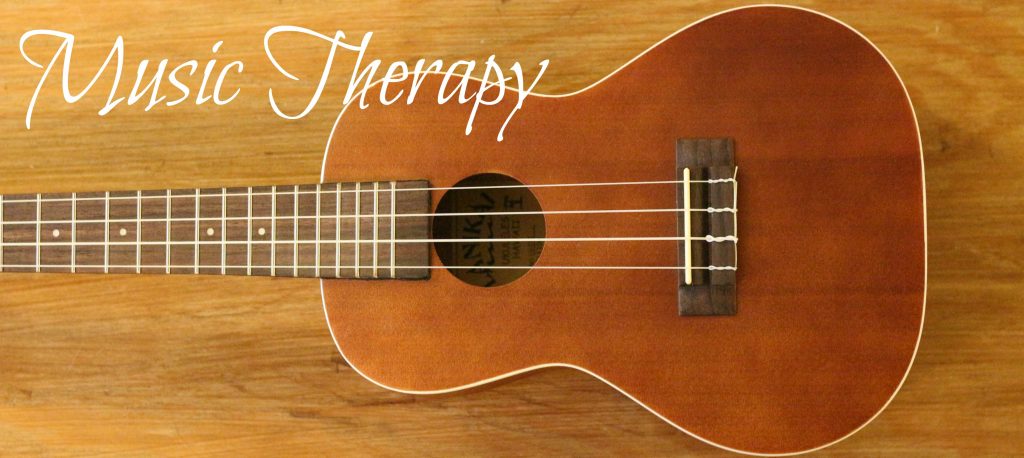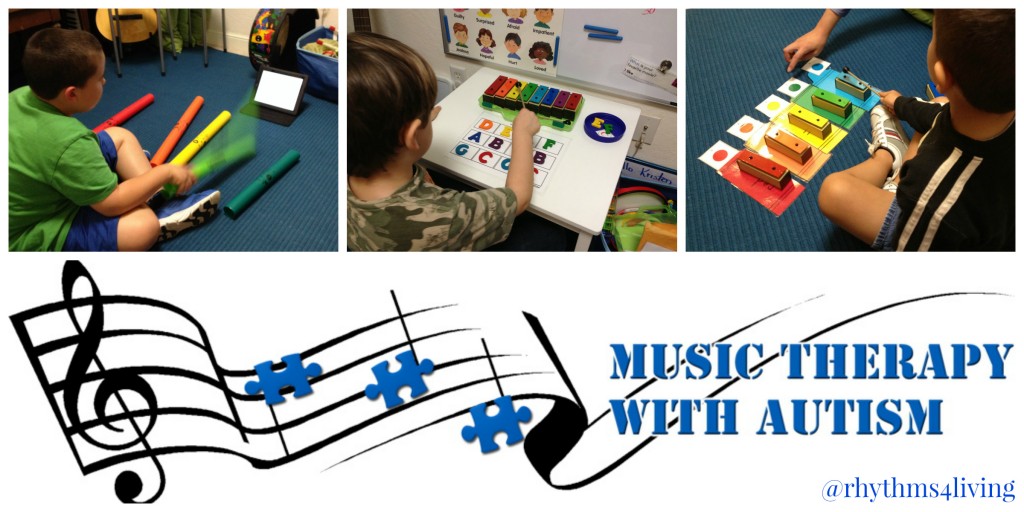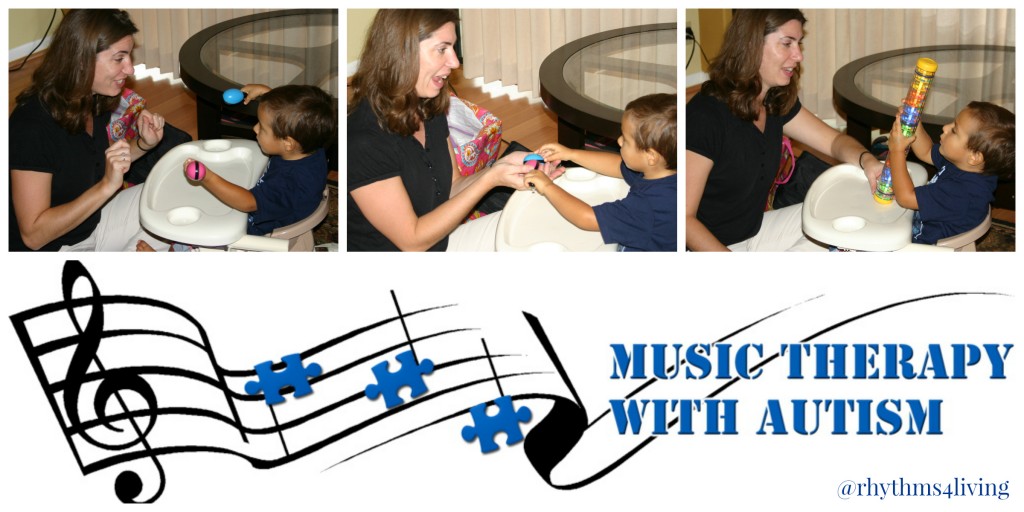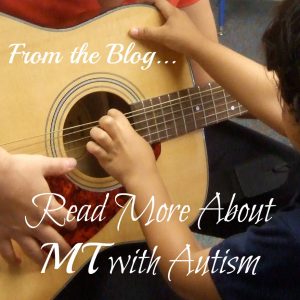
Music Therapy for Individuals on the Autism Spectrum
Types of Sessions
- Individual Sessions
- Group Sessions
- Early Intervention
- Parent-Child Sessions
Goals
- Motor Movement
- Communication and Language
- Social and Emotional Skills
- Attention and Focus
- Cognitive Functioning
- Basic Music Skills (adaptive music lessons)
Interventions
- Instrument Play
- Singing
- Moving to Music
- Listening to Music
- Music Games
Why Music Therapy for Individuals with Diagnoses on the Autism Spectrum?
Research reports that most individuals with autism respond positively to music (DeMyer, 1974; Edgerton, 1994; Euper, 1968; Snell, 1996; Thaut, 1992).
- People with diagnoses on the autism spectrum often show a heightened interest and response to music, making it an excellent therapeutic tool to work with them.
- Music is a very basic human response, spanning all degrees of ability/disability. Music therapists are able to meet clients at their own levels and allow them to grow from there. The malleability of music makes it a medium that can be adapted to meet the needs of each individual.
- Music is motivating and enjoyable.
- Music can promote relatedness, relaxation, learning, and self-expression.
- Music therapy addresses multiple developmental issues simultaneously.
- Music therapy can provide success-oriented opportunities for achievement and mastery.
- The structure and sensory input inherent in music help to establish response and role expectations, positive interactions, and organization.
(American Music Therapy Association)
Want to know more about Music Therapy with Autism?
Music Therapy and Autism – AMTA Fact Sheets
Music Therapy and Special Education – AMTA Fact Sheets
Music Therapy and Autism – Research – AMTA Fact Sheets
Music Therapy and Special Education – Research – AMTA Fact Sheets
Music and Autism Research – Coast Music Therapy
In the Media
Using the language of music to speak to children with autism:http://www.nj.com/entertainment/arts/index.ssf/2009/03/using_the_language_of_music_to.html
Music Therapy and the Emergence of Spoken Language in Children with Autism:http://www.speechpathology.com/articles/article_detail.asp?article_id=343
CNN iReport: Music Therapy and Austim: http://www.musictherapy.org/cnn_ireport_music_therapy_and_autism/
Indy Sings – Music Therapy for Children with Autism: http://indianapublicmedia.org/arts/indy-sings-music-therapy-children-autism/
NBC – Music to treat kids with autism: http://www.nbcconnecticut.com/video/#!/on-air/as-seen-on/Music-Therapy/193991281
Science Daily – Music Therapy Improves Behavior in Children with Autism: http://www.sciencedaily.com/releases/2013/02/130219140100.htm
Music Therapist Works to Give Children with Autism a Voice: http://www.shsu.edu/~pin_www/T@S/sliders/2012/lim.html
Music Therapy and the Emergence of Spoken Language in Children with Autism: http://www.speechpathology.com/articles/music-therapy-and-emergence-spoken-1199
Please Note: Rhythms For Living no longer offers services in South Florida. This website is an online resource for parents, teachers, and therapists as a source of information, education, and resources of ideas, fact sheets, recommended resources, and eBooks. To find a music therapist in your area please refer to cbmt.org or musictherapy.org.


